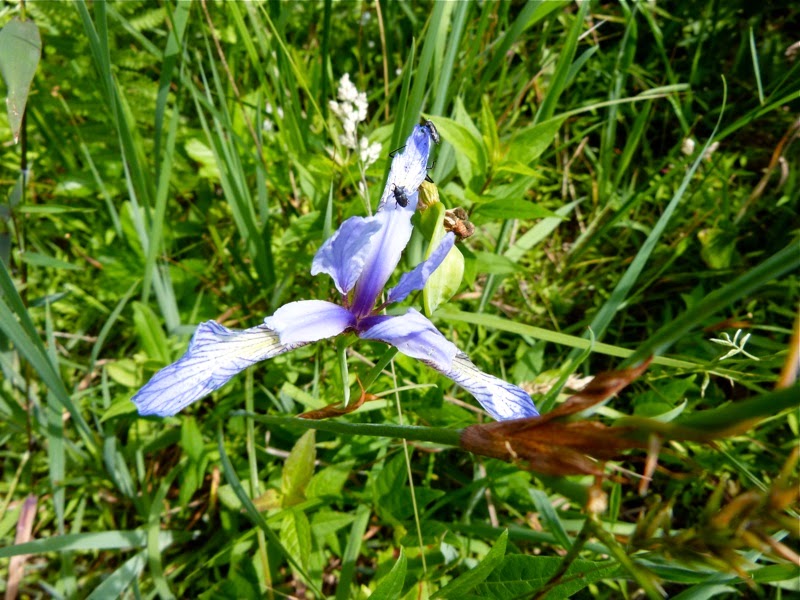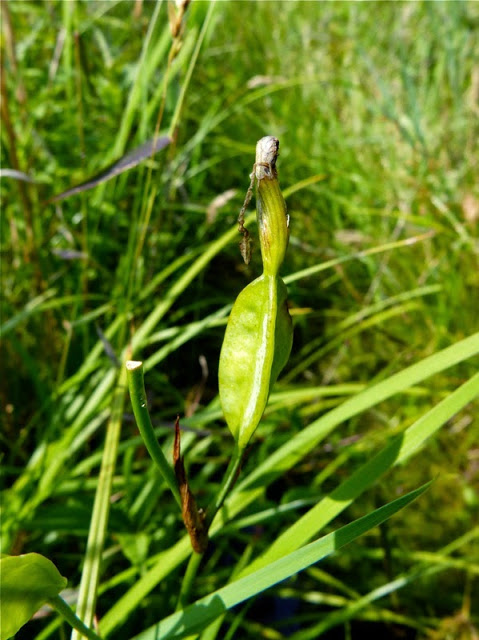Map Snapshot












16 Records
Status
Occurs in moist depressions in deciduous woods, as well as in mesic sandy soil (Steury, 2002).
Seasonality Snapshot
Source: Wikipedia
| Slender blue flag | |
|---|---|

| |
| Scientific classification | |
| Kingdom: | Plantae |
| Clade: | Tracheophytes |
| Clade: | Angiosperms |
| Clade: | Monocots |
| Order: | Asparagales |
| Family: | Iridaceae |
| Genus: | Iris |
| Subgenus: | Iris subg. Limniris |
| Section: | Iris sect. Limniris |
| Series: | Iris ser. Prismaticae |
| Species: | I. prismatica
|
| Binomial name | |
| Iris prismatica Pursh
| |
| Synonyms[1] | |
| |
Iris prismatica, the slender blue flag or cubeseed iris,[2] is a plant species native to parts of the southern and eastern United States from Maine south to Alabama, as well as to the Canadian provinces of Ontario and Nova Scotia.[3][4][5]
Iris prismatica is a perennial herb spreading by means of rhizomes that are close to the surface of the soil. Flowering stalks can reach a height of 80 cm. Leaves are long and narrow, up to 60 cm long but rarely more than 5 mm across. It has 2–3 blooms in May.[2] Flowers are pale blue to blue-violet.[6][7][8][9][10] It tends to grow in swampy,[2] wet conditions,[3] and within the United States, it is currently state listed as 'threatened' in Maine, New Hampshire, New York, and Tennessee, and state listed as 'endangered' in Maryland and Pennsylvania.[11] It is cold hardy to USDA Zone 3.[2]
References
[edit]- ^ The Plant List, Iris prismatica
- ^ a b c d Donald Wyman Wyman's Gardening Encyclopedia, p. 576, at Google Books
- ^ a b Flora of North America v 26 p 395, Iris prismatica
- ^ BONAP (Biota of North America Project) floistic synthesis, Iris prismatica
- ^ Rodionenko, Georgi Ivanovich. 2007. Botaničnyj Žurnal 92: 552. 2007.
- ^ Pursh, Frederick Traugott. 1813. Flora Americae Septentrionalis 1: 30.
- ^ Godfrey, R. K. & J. W. Wooten. 1979. Aquatic and Wetland Plants of Southeastern United States Monocotyledons 1–712. The University of Georgia Press, Athens.
- ^ Chester, E. W. 1993. Atlas of Tennessee Vascular Plants Volume 1. Pteridophytes, Gymnosperms & Moncots. 118 pp.
- ^ Radford, A. E., H. E. Ahles & C. R. Bell. 1968. Manual of the Vascular Flora of the Carolinas i–lxi, 1–1183. University of North Carolina Press, Chapel Hill.
- ^ Gleason, H. A. & A.J. Cronquist. 1968. The Pteridophytoa, Gymnospermae and Monocotyledoneae. 1: 1–482. In H. A. Gleason New Britton and Brown Illustrated Flora of the Northeastern United States and Adjacent Canada. New York Botanical Garden, New York.
- ^ "Natural Resources Conservation Service". United States Department of Agriculture. Retrieved 22 May 2014.


